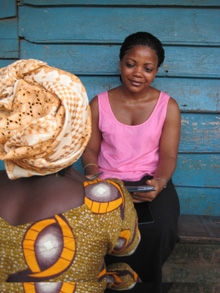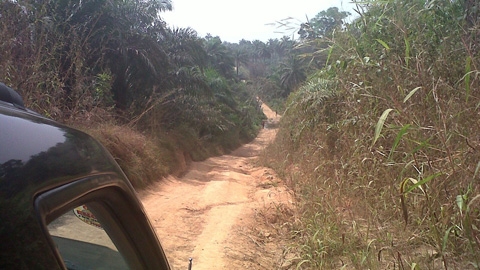Imagine an area the size of South Carolina with a population of six million people (about the population of San Francisco and Chicago combined). Now imagine that there are only ten surgeons available in this entire region. If you are unlucky enough to need surgery for any reason, chances are high that you will never receive treatment. Ever.
That is precisely the situation facing the people of Sierra Leone, which the statistics above describe, according to a study published August 14, 2012 in the Lancet. Millions of people throughout sub-Saharan Africa face the same shortage of surgical care: by a conservative estimate extrapolated from a larger set of data, 56 million people in Africa need surgical care today, according to Adam Kushner, MD, MPH, FACS, Lecturer in the Department of Surgery at NewYork-Presbyterian/Columbia, co-founder of the non-profit organization Surgeons OverSeas, and principal investigator of the Lancet study.
 Together with 46 experts in global health, Dr. Kushner developed the Surgeons OverSeas Assessment of Surgical Need (SOSAS) in order to determine the need for surgical care in low-income countries such as Sierra Leone, Rwanda, and others. According to Dr. Kushner, “There is currently widespread support for public initiatives to treat HIV, malaria, and other conditions, but surgery has long been the ‘neglected stepchild’ in the global health community.” Surgeons in the field have long observed the pressing need for access to surgery during missions abroad, but there was no data to document that. “If we can’t quantify the problem, we can’t get support for it,” Dr. Kushner says. This study, he explains, is a first step toward mobilizing the World Health Organization, the U.S. government, foreign governments, and others in the global health community to address this dire need.
Together with 46 experts in global health, Dr. Kushner developed the Surgeons OverSeas Assessment of Surgical Need (SOSAS) in order to determine the need for surgical care in low-income countries such as Sierra Leone, Rwanda, and others. According to Dr. Kushner, “There is currently widespread support for public initiatives to treat HIV, malaria, and other conditions, but surgery has long been the ‘neglected stepchild’ in the global health community.” Surgeons in the field have long observed the pressing need for access to surgery during missions abroad, but there was no data to document that. “If we can’t quantify the problem, we can’t get support for it,” Dr. Kushner says. This study, he explains, is a first step toward mobilizing the World Health Organization, the U.S. government, foreign governments, and others in the global health community to address this dire need.
In collaboration with the local ministry of health, local surgeons, the medical school, and statistics bureau of Sierra Leone, the SOS study sampled the population across the country and captured extensive information about the health of household members. Local nursing students performed the surveys using iPads, asking questions about the current health of household members as well as about deaths during the previous year. The goal was to determine the prevalence of conditions that currently warrant a surgical evaluation or operation, as well as to identify which deaths might have been prevented by surgical care. “The people overwhelmingly were thankful that someone was asking about this,” says Dr. Kushner.

About 25% of the population of Sierra Leone needs surgical care of one type or another, the study found, for conditions as diverse as tumors, broken bones, burns, hernias, and more. In the absence of care, millions of people are disfigured, disabled, or they die from common conditions such as wounds or cuts that are not sutured properly. “The horrors of obstetrical fistulas, which have gained some media attention in the last year, is just one example of a problem that is easily preventable with relatively inexpensive surgical care. Such care is highly cost effective and can achieve a lot with relatively low investment,” says Dr. Kushner.
Read the full SOSAS study in the Lancet here.

